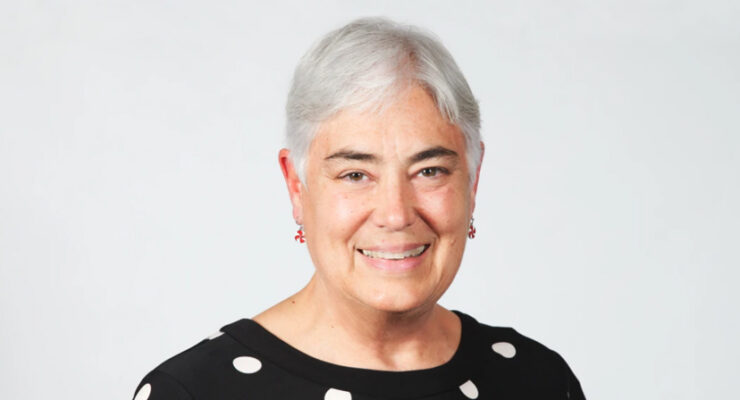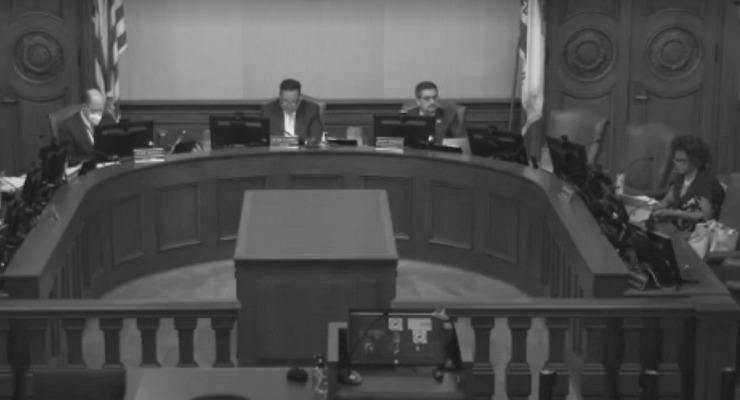Opponents of the Pasadena City outside consultants’ recommendation for increased civilian oversight of the Pasadena Police Department by an Independent Police Auditor (“IPA”) keep repeating the inaccurate assertion that “only a small minority” of Pasadenans believe our PD is in need of such reform. They are clearly wrong.
The IPA organizational support’s breadth vs. the organizational opposition’s small minority
The Coalition for Increased Civilian Oversight of Pasadena Police (“CICOPP”) is made up of local organizations who have endorsed the IPA proposal. When CICOPP was formed 2 ½ years ago, Council Member John Kennedy’s motion to study the idea of increased civilian oversight died because no other member of the Public Safety Committee or the City Council would second it. After a lengthy study of different civilian oversight models, CICOPP endorsed the Independent Police Auditor proposal for Pasadena. The constituent organizations in CICOPP and their approximate members or congregants are the following: All Saints Church, 3,000; local ACLU Chapter, 1,000+, with more than 600 in Pasadena; Neighborhood Unitarian Universalist Church, 700; ACT, 350; Pasadena NAACP, 300; Arroyo Democratic Club, 250; Democrats of Pasadena Foothill, 100. The Interdenominational Ministerial Alliance is a membership organization of approximately 35 pastors of predominantly African-American churches; they minister to more than 5,000 congregants. Other CICOPP organizations for which I don’t have estimates include the Board of the Pasadena YWCA, the Pasadena Latino Forum, Clergy & Laity United for Economic Justice, and the Pasadena Community Coalition.
Even considering the likelihood of some overlapping members in the CICOPP constituent organizations, they undoubtedly include or represent more than 8,000 Pasadenans. The only organizations known to formally oppose the IPA is the police union with about 200 members, most of whom do not live in Pasadena. As far as organizational support goes, police union members are actually “only a small minority” – albeit a powerful one.
Thus, looking at one indicium of support/opposition to the IPA – organizations taking a position on the issue –, the tiny, tiny minority is not the advocates for an IPA but rather the IPA opponents.
Scientific survey data shows broad recognition of discriminatory policing
There has been no polling on what Pasadena residents think about the IPA, but last year the City commissioned a scientific study which led to surveying 1197 respondents on community perceptions of the Pasadena Police Department. Cal State LA Prof. Lisa Graziano’s report on the survey was made publicly available with the agenda for the April 18 joint City Council/Public Safety Committee meeting. Two questions in the survey provide an indication of attitudes toward the IPA – i.e., respondents were asked whether they agreed or disagreed that “Pasadena police officers are likely to treat Whites better than minorities” and “wealthy people better than those less well-off.” The results show that a substantially greater percentage of Pasadenans agree with the foregoing statements that the Pasadena PD engages in race and class biased policing:
 As reflected by the chart, 47% and 49% agreed/strongly-agreed with those statements. In each case, only 31% disagreed/strongly-disagreed. (The remainder didn’t have an opinion.) When we consider only those respondents who actually had interactions with the Pasadena police in the preceding year, even more agreed with these statements.
As reflected by the chart, 47% and 49% agreed/strongly-agreed with those statements. In each case, only 31% disagreed/strongly-disagreed. (The remainder didn’t have an opinion.) When we consider only those respondents who actually had interactions with the Pasadena police in the preceding year, even more agreed with these statements.
Of the 373 residents who voluntary sought police assistance (out of 1197 respondents to the survey), 50% and 54% agreed with the two statements; and of the 183 residents who were involuntarily stopped or approached by police, the numbers were 63% and 64%. A few of those who agreed/strongly-agreed might favor treating minorities and poor people worse, but most presumably disapprove of discriminatory policing and are likely to support reform measures. The survey results do not prove that discriminatory policing is occurring in Pasadena, but they do show that a large part of the community, especially those who know the police best, perceive them that way. That perception alone is a significant problem that needs to be addressed.
The perceptions supporting police reform are stronger in practically every racial group and are stronger in every geographic area
While the public perception of Pasadena PD policing favoritism on race and class is strongest in Northwest Pasadena and among African-Americans, the percentage of Pasadenans believing that the Pasadena PD’s policing is race and wealth biased is significantly larger than those who disagree in nearly every racial group and geographic area in Pasadena.
As the above chart reflects, every racial group has a significantly higher percentage of respondents who agree that the PD’s policing favors the wealthy over the less wealthy than those who disagree with the statement: African-Americans by an overwhelming 73%-15.3% margin, Whites by a 48.3% to 30.4%, Latinos by 47.3% to 34.6%, and Asians 39.7% to 32.3%. Moreover, every geographic group has a significantly higher percentage of respondents who agree that the PD engages in such class-biased policing: from a high of 55.3%-25.0% in Northwest Pasadena to a low of 40.7%-37.7% in West Pasadena.
As the above chart reflects, every racial group except Asians has a significantly higher percentage of respondents who agree that the PD’s policing favors Whites over minorities than those who disagree with the statement: African-Americans by an overwhelming 69%-18.6% margin, Latinos by 50.6% to 30.4%, and Whites by 43.3% to 28.8%. Asians are essentially in a statistical tie, with 35% agreeing and 35.7% disagreeing. Again, every geographic group has a higher percentage of respondents who agree that the PD engages in such race-biased policing: from a high of 52.0%-27.0% in Northwest Pasadena to a low of 40.1%-38.3% in West Pasadena.
Police oversight through an IPA should be adopted
Council Member Kennedy’s lonely voice in 2013 was finally heard last summer when the City Council unanimously adopted a resolution appropriating $50,000 to hire consultants to give it advice on which form of police oversight is most appropriate for Pasadena. Over three days in January, the consultants got input for their study from the police unions, CICOPP, City Council Members, City staff, and approximately 100 people at public meetings. Their report was debated by the City Council in a marathon meeting on April 18, with three council members (Hampton and Kennedy and Mayor Tornek) supporting the consultants’ recommendation for an IPA, three opposing it (Masuda, Madison, and McAustin), one saying he needed more information on an IPA’s cost (Wilson), and one saying that an IPA should not be considered at this time because hiring more police must be considered first (Gordo).
The IPA proposal should be adopted because it is meritorious. Its fate should not be determined by mechanically counting supporters and opponents, but widespread perception of policing bias is itself a problem that warrants investigation and recommendation of remedial measures from an independent source such as an IPA. The accusation that the IPA is being pushed by “a tiny minority” is clearly false. Examination of the number actively supporting and opposing it and the number of residents whose attitudes imply support or opposition shows that the accusation is more a psychological projection by the IPA’s opponents of their own tiny base rather than a valid assertion. Both the organized groups in Pasadena who have weighed in on the subject and the prevailing perceptions in Pasadena support that the City should adopt the IPA proposal, as recommended by the consultants, while opposition to the IPA is the position of a small minority.
Skip Hickambottom and Dale Gronemeier are local civil rights attorneys. The statistical data relied upon in the last two charts was compiled by local ACLU activist Larry D’Addario from the raw data from which Prof. Graziano’s Report was compiled.














 0 comments
0 comments




